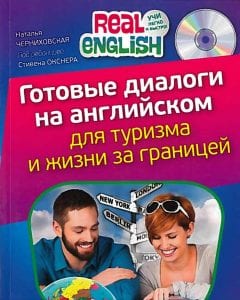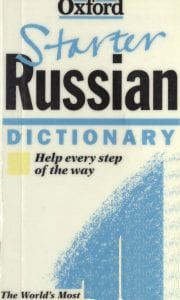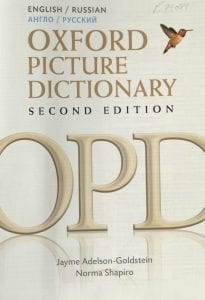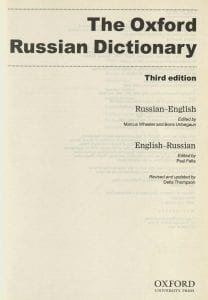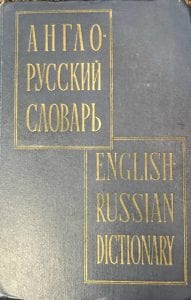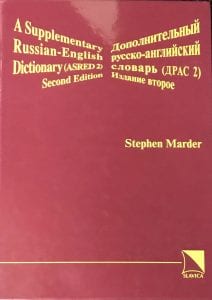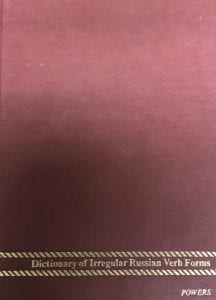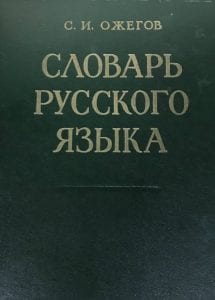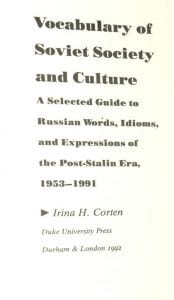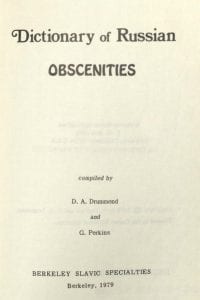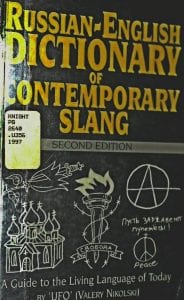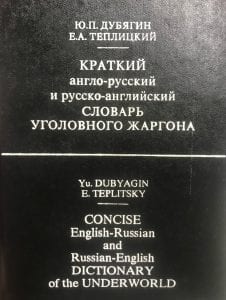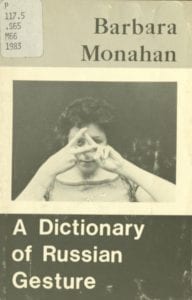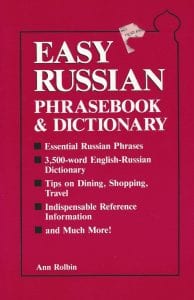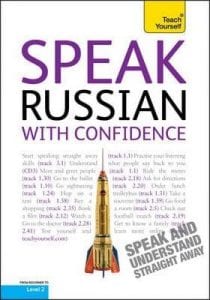Russian-English/English-Russian dictionaries
Thompson, Della. The Oxford Starter Russian Dictionary. Oxford; New York: Oxford University Press, 1997.
This dictionary is perfect for beginners. Not only does it contain a list of essential words, but it also provides comprehensive grammatical explanations and even exercises as well as useful tables such as a table of verb conjugations.
Adelson-Goldstein, Jayme., and Shapiro, Norma. Oxford Picture Dictionary: English/Russian = Anglo/Russkiĭ. 2nd ed. New York: Oxford University Press, 2009.
Here is another Oxford dictionary. What makes this one unique is its abundance of illustrations that coincide with English-Russian words, making it easier to understand the concepts presented.
Wheeler, Marcus., Unbegaun, Boris Ottokar, Falla, P. S., and Thompson, Della. The Oxford Russian Dictionary. Third ed. Oxford; New York: Oxford University Press, 2000.
This comprehensive Russian-English dictionary was also compiled by Oxford University. This resource offers basic and concise translations of Russian words. It also provides some grammatical information.
Smirnit︠s︡kiĭ, A. I., and Akhmanova, O. S. Russko-angliĭskiĭ Slovarʹ: Okolo 55.000 Slov. Izd. 15-e, Ispr. I Dop. ed. Moskva: “Russkiĭ I︠a︡zyk”, 1989.
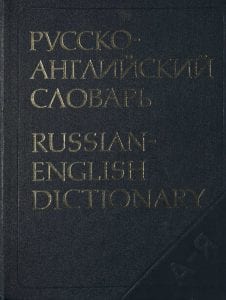
One of the most popular Russian-English/English-Russian dictionaries in the former Soviet Union.
Müller, V. K. English-Russian Dictionary. New York, NY: Dutton. 1959.
Another of the most popular English-Russian dictionaries in the former Soviet Union.
Supplementary dictionaries
Marder, Stephen. A Supplementary Russian-English Dictionary. 2nd ed. Bloomington: Slavica, 2007.
This second edition of the Supplementary Russian-English Dictionary contains important words and expressions not found in A. Smirnitsky’s Russian-English Dictionary and M. Wheeler’s The Oxford Russian-English Dictionary. It serves as a useful supplement to those texts.
Powers, D. B. A Dictionary of Irregular Russian Verb Forms. New York: Wiley, 1968.
This dictionary will help students and translators with Russian irregular verb forms. It includes a comprehensive list of verbs in different forms, conjugations and aspect. It also includes archaic and obsolete verbs, to help with the translation of early Russian literature.
Ozhegov, S. I., and Shvedova, Natalʹi︠a︡ I︠U︡lʹevna. Slovarʹ Russkogo I︠a︡zyka : 70,000 Slov. 21-e Izd., Perer. I Dop. ed. Moskva: “Russkiĭ I︠a︡zyk”, 1989.
Ozhegov is the “Merriam-Webster” of Russia. This dictionary contains 70,000 Russian words with explanations and examples of their use. This dictionary is entirely in Russian, but it is a very helpful tool in understanding the language.
Specialized dictionaries
Corten, Irina H. Vocabulary of Soviet Society and Culture: A Selected Guide to Russian Words, Idioms, and Expressions of the Post-Stalin Era, 1953-1991. Durham: Duke University Press, 1992.
Here is a dictionary of words used in the post-Stalin Soviet Union. It is a comprehensive guide to Soviet abbreviations and terms, giving definitions and historical contexts for each word.
Drummond, David Allan, and Perkins, G. Dictionary of Russian Obscenities. Berkeley: Berkeley Slavic Specialties, 1979.
This is a dictionary of Russian swear words and obscenities from the Soviet era. Although it is outdated, it is still interesting to look at the obscenities of the past. Some of them survive to this day. A number of the entries are from Soviet prison camp speech.
Kveselevich, D. I. Russko-angliĭskiĭ Slovarʹ Nenormativnoĭ Leksiki = Dictionary of Unconventional Russian: Russian-English: Okolo 15000 Slov I 4000 Frazeologicheskikh Edinit︠s︡. Moskva: Astrelʹ : AST, 2002.
Dictionary of Russian Unconventional Language was published in the early 2000s. It captures the Russian vulgarities and obscenities of the pre-Putin era of post-Soviet Russia. This dictionary is entirely in Russian.
Davie, James., and Ufo. Russian-English Dictionary of Contemporary Slang: A Guide to the Living Language of Today. 2nd Ed. / Rev. and Enl. by James Davie. ed. Nottingham: Bramcote, 1997.
This is the second revised and enlarged edition of the 1993 dictionary, written by Valeri Nikolski, that includes Russian slang from 1953 until 1993. It reflects the slang used by different Russian sub-cultures and is an essential guide to reading contemporary Russian literature, magazines and other outlets where slang often appears.
Dubi︠a︡gin, I︠u︡. P., and Teplit︠s︡kiĭ, E. A. Kratkiĭ Anglo-russkiĭ I Russko-angliĭskiĭ Slovarʹ Ugolovnogo Zhargona. Moskva; Москва :: Terra; Терра, 1993.
This is a dictionary of Russian-English and English-Russian criminal/prison slang. It gives the Russian equivalent of the terms used in English-speaking prisons and vice versa. This dictionary offers an interesting perspective on Russian prison culture, showing some similarities to English-speaking prison culture. It also compiles a selection of tattoos typical of the criminal element in Russia, with explanations of their meaning and symbolism.
Monahan, Barbara. A Dictionary of Russian Gesture. Tenafly, NJ: Hermitage, 1983.
This is a dictionary full of photos of Russian gestures that could be encountered in the former Soviet Union and even nowadays in Russia. Comparisons are drawn between the gestures of people in the USA and the USSR. It showcases gestures like handshakes, greetings, signs of frustration, and others. Interesting gestures, such as the “triple kiss,” can be found in this dictionary.
Phrasebooks
